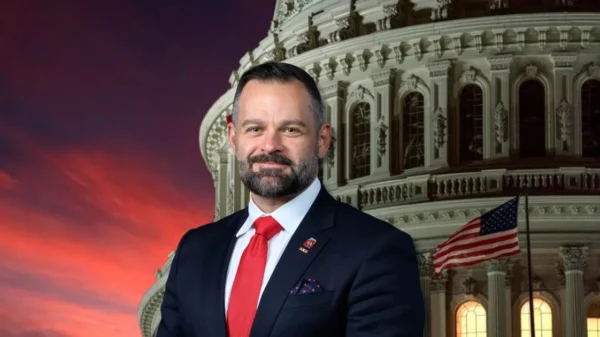Last week, two Republicans in the Florida delegation–U.S. Reps. Brian Mast and Bill Posey–threw their support behind U.S. Rep. Suzanne Bonamici’s, D-Oreg., “Blue Carbon For Our Planet Act.”
According to Bonamici’s office, the bill “will strengthen federal research on blue carbon and take steps to protect and restore coastal blue carbon ecosystems” by creating a “national map and inventory of coastal blue carbon ecosystems and their sequestration potential, study the effects of climate change and other environmental stressors on rates of carbon sequestration, improve and expand protections for existing coastal blue carbon ecosystems, and restore degraded ecosystems.”
“Blue carbon ecosystems are a powerful tool for removing carbon dioxide from the atmosphere, with mangroves, tidal marshes, seagrasses, and other kelp forests capable of storing carbon dioxide in their stems, branches, leaves, roots, and soils for centuries to millennia,” the congresswoman’s office noted.
“Our ocean and coastal ecosystems are often overlooked and undervalued, but they are among the world’s most productive working ecosystems and can help in our work to solve the climate crisis,” said Bonamici. “We must act now to capture the great power of our coastal ecosystems to remove carbon dioxide from the atmosphere and store it. The bipartisan Blue Carbon for Our Planet Act recognizes the potential of this natural climate solution by mapping, protecting, and restoring coastal blue carbon ecosystems.”
Mast stressed the bill “is designed to capture the power of our ocean and estuaries to protect coastal blue carbon ecosystems like the St. Lucie Estuary, Indian River Lagoon and Lake Worth Lagoon” when he weighed in on it on Thursday.
“Blue carbon ecosystems like those all along Florida’s coastlines serve a critical purpose providing habitats for fish and oysters, protecting our shorelines and improving water quality,” Mast said. “But if we continue down the current path of mistreating our coastal ecosystems and poisoning our waterways, we are going to exponentially increase the damage and risks for future generations. Making sure we protect and restore these ecosystems is a must.”
Restore America’s Estuaries, Earthjustice, Ocean Conservancy, National Audubon Society, National Estuarine Research Reserve Association and the Theodore Roosevelt Conservation Partnership are all backing the proposal.
The bill was sent to the U.S. House Natural Resources; the Science, Space and Technology; and the House Administration Committees. So far, there is no companion measure over in the U.S. Senate.
Reach Kevin Derby at kevin.derby@floridadaily.com.

















